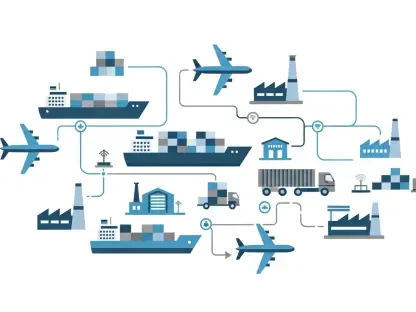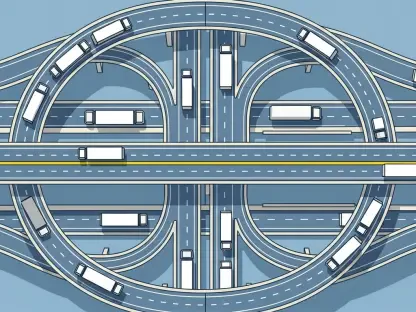The rapid advancement of e-commerce has profoundly impacted global logistics, a trend that was significantly accelerated by the COVID-19 pandemic. During this time, e-commerce sales soared to an estimated $5.8 trillion in 2023, as even the most hesitant consumers turned to online shopping out of necessity. This shift has necessitated a reevaluation of logistics operations, emphasizing the increasing importance of last-mile deliveries. Efficient and timely last-mile delivery has become crucial for e-commerce companies striving to meet heightened customer expectations and maintain a competitive advantage. As societal and technological changes continue to evolve, the interplay between retail and logistics has become more intricate, highlighting the indispensable role of delivery networks.
The pandemic not only changed consumer shopping habits but also brought about a surge in demand for logistics services, revealing the vulnerabilities and opportunities within the sector. Companies have had to innovate and adapt quickly, investing in technology to optimize delivery routes, automate warehouses, and enhance inventory management systems. This transformation has made it possible to manage the massive volume of orders more efficiently, reducing delays and improving customer satisfaction. As a result, logistics firms are now more agile, capable of scaling their operations to meet demands swiftly, and better prepared for any future disruptions. The ongoing evolution in e-commerce continues to shape the logistical landscape, driving innovation and setting new standards for the industry.
The Role of Technological Advancements
The rapid growth of e-commerce has significantly transformed global logistics, a shift that was dramatically accelerated by the COVID-19 pandemic. In 2023, e-commerce sales soared to approximately $5.8 trillion as even previously reluctant consumers turned to online shopping out of necessity. This trend has forced a comprehensive reassessment of logistics operations, with a particular focus on last-mile delivery, which is now crucial for e-commerce companies aiming to meet high customer expectations and stay competitive. The ongoing social and technological changes have made the relationship between retail and logistics more complex, underscoring the critical role of delivery networks.
The pandemic didn’t just change shopping habits; it also led to a surge in demand for logistics services, exposing both weaknesses and opportunities in the sector. Companies had to quickly innovate and adapt, investing heavily in technology to optimize delivery routes, automate warehouses, and enhance inventory management. This technological upheaval has allowed businesses to manage massive order volumes efficiently, cutting delays and boosting customer satisfaction. Consequently, logistics firms have become more agile, capable of scaling operations to meet demand swiftly, and are better prepared for future disruptions. The continuous evolution of e-commerce keeps shaping logistics, driving innovation and setting new industry standards.









